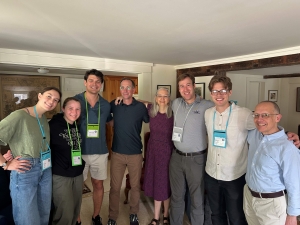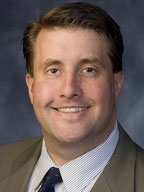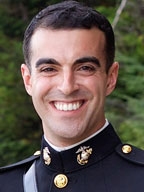Our Alumni
One of the great benefits of a liberal arts education is the range of pursuits for which it prepares students.

It’s always lovely to catch up with alumni during reunions.
Our students go on to a wide range of careers in medicine, journalism, architecture, consulting, farming, business, banking, music, and the art and museum worlds. If you have news to share, please contact the Alumni Office.
Career Fields
Teaching: Many students teach for at least a few years after Middlebury. Nationwide there is great demand for teachers of Latin at the secondary level, and so those of our majors who study more than a minimum of the language are well positioned to start good employment right after college. (It is far more difficult, alas, to find a job teaching Greek.) Some of them subsequently go on to other occupations, but many stay and enjoy long and happy careers in secondary-school education.
Academia: Academic fields include ancient history, medieval studies, and classical archaeology.
Law: In the legal world, our students routinely attend some of the country’s most prestigious law schools and go on to use their law degrees in every area from corporate law to nonprofits and in every context from private practice to the Marine Corps.
Alumni Updates
- Ryan Tauriainen ’08 has been named the Washington Post Principal of the Year.
- Katharine P. D. Huemoeller ’07 was awarded the 2015–2016 Dorothy and Lewis B. Cullman/Frank Brown Pre-Doctoral Rome Prize in Ancient Studies.
Alumni Profiles

Peter Burke ’94
Assistant Vice President, John Hancock Financial Services
“Classics taught me to take the long view. Latin taught me to solve problems. And Middlebury taught me to know my audience.”
What have been your key milestones since graduating from Middlebury?
When I graduated from Middlebury in 1994, I did not have a clear plan for the future. I spent the year after I graduated as a residence hall advisor. So it was in 1995 that I put Middlebury in the rearview mirror. A few weeks later, in July of 1995, I began working for the company that still employs me.
I have utilized my time at Hancock Financial Services to obtain several business, insurance, and financial industry designations, and have worked in life insurance, mutual funds, annuities, and long-term care. I began managing staff in 1996 when I took on a team of newly hired call center representatives servicing life and annuities. In 1998, I became a manager in annuity operations. In 2003 I moved to long-term care. I moved into a director role, and then in 2007 into an officer role with the company. At every turn I sought the opportunity to learn what each new role had to teach me, to make the job my own, and to take coursework and certification opportunities to broaden my knowledge.In more recent years I have joined the boards at a bank and a scholarship committee, both of which keep me connected to my local community.
How has the classical studies major influenced your life after graduation?
My education has influenced most facets of my life. I guess the easiest example is my choice in literature. Whether reading fiction, nonfiction, or fact-based fiction, I love work that spans decades and centuries, the origins and the evolutions, the accidents that move history.
How have the skills, knowledge, or dispositions you learned as a classical studies major translated into your career?
Classics taught me to take the long view. Latin taught me to solve problems. And Middlebury taught me to know my audience.
In studying the classics, it is impossible not to see the events of a period on a continuum of what came before and after. That is the perspective I bring to every job, every management team, every project: Are we solving different problems than we were six months ago? Could we be where we are now without the work we have done to date? The questions are rhetorical, but asking them is important so as to maintain confidence while moving forward during uncertain times.
In attacking problems, as with parsing Latin text, there is always a variety of ways to get at something very close to “right,” without always being “literal.” In short, good enough sometimes has to be good enough. Strive for better, refine, learn, refine again, but do not pursue elusive perfection; do not let perfect be the enemy of good.
Finally, in writing papers, taking exams, arguing a point with friends or professors, it was essential always to know an audience. The same is true in business and in life. The most eloquent message will not resonate with its recipient if it is inconsiderate of the audience.
Did you know what career path you wanted to pursue after graduating?
Unequivocally, no. I often joke that no one plans to major in classics and no one plans to be a financial services executive. Each is incredibly enriching and edifying, but neither was my self-willed path.
Finally, what advice or suggestions do you have for current classics majors as they consider their post-Middlebury futures?
Realize that college has provided an expansive education. The learning, the knowledge, the awareness you have pursued was all around you for four years. The coursework was important, but still just a piece of the whole. Apply the entire education to your life’s work, personally and professionally.

Anthony Garofano ’04
Operational Law Attorney, U.S. European Command
“Studying classics has been crucial in how I understand the motivations and decisions of our culture and government today.”
What have been your key milestones since graduating from Middlebury?
Deploying to Afghanistan with an infantry battalion and being in combat has been one of the most significant milestones by far. Similarly, commanding a company of more than 400 Marines and my current job in the House have been major career highlights. Finally, in 2012 I was named the American Bar Association’s 2011–2012 Outstanding Young Military Lawyer for the United States Marine Corps, and that was a positive experience. On the personal side, I got married last summer and we are expecting a child this fall. While not career related, that’s a pretty big change that I am very excited about!
How has the classical studies major influenced your life after graduation?
Obviously, the world of 2015 is vastly different than that of Pericles or Augustus, but the glories, tragedies, advancements, horrors, success, and failures of their times have a massive influence on our own culture and democracy. The neoclassical architecture of the buildings I work in every day are a constant reminder of that. I do not know how I would look at or consider that influence today if I had not studied the classics for four years, but it is a crucial part of how I understand the motivations and decisions of our culture and government today.
It has also been, perhaps surprisingly, extremely relevant to a military career. The commandant of the Marine Corps has a reading list for every rank, and many of those books are histories of the classical era. For instance, I have studied Alexander the Great’s logistical operations as he conquered much of the known world, and the pleasure of such reading is certainly multiplied by the appreciation for that era gained at Middlebury. My choice of non-assigned books has also been greatly influenced by my classical studies major. Purchasing a book based on little beyond the author’s ancient Greek or Latin name is an occasional vice.
How have the skills, knowledge, or dispositions you learned as a classical studies major translated into your career?
A basic Marine rifleman needs to shoot, move, and communicate. A Marine officer needs to do that plus plan and lead. And a Marine judge advocate needs to do all that plus research cases, write briefs, argue before fellow officers, and, in a deployed environment, speak intelligently about law of armed conflict and rules of engagement while under intense time pressures and, occasionally, enemy fire. (That list of requirements may be a bit biased in favor of my specialty… . ) I may not have learned to shoot and move at Middlebury, but the research, writing, and analytical skills learned as a classical studies major are second to none. I went to law school and into active duty very confident in those skills after four years at Middlebury and have found that confidence justified at every turn. When I talk to peers about how they were challenged as undergraduates, very few were asked to do nearly as much as we were at Middlebury, and even fewer were held to as high of standards.
When did you know you wanted to be a classical studies major?
I took an introductory history of classical Greece with Professor Jane Chaplin the very first semester I was at Middlebury. I loved it and her. I then took nearly every class she taught and quickly snapped up every other course the Classics Department offered that I could. Suddenly I was a junior and, though a declared history major, only a few language classes away from completing a classical studies major. At that point, it only seemed right to double major. And though I will not pretend to have been any good at Greek, I am very glad I did double major.
Did you know what career path you wanted to pursue after graduating?
I did after the summer of my sophomore year; prior to that I had absolutely no idea. I went to Marine Corps Officer Candidate School in the summers after my sophomore and junior years and earned a commission after that second round of OCS. I did not decide to try and become a judge advocate and go to law school until my senior year. Perhaps my Roman Law class influenced that.
Finally, what advice or suggestions do you have for current classics majors as they consider their post-Middlebury futures?
Keep a truly open mind. I never would have imagined myself in the military, far less a Marine officer, as a first-year student at Middlebury, but I would not change a thing today!

Rebecca Scholtz ’06
Senior Attorney, Defending Vulnerable Populations Project, CLINIC
“Classics taught me how to think and analyze on a micro level—language structure and grammar—but also on the macro level, to develop arguments and theories.”
What have been your key milestones since graduating from Middlebury?
About a month after graduation, I joined the Peace Corps and spent two years in Costa Rica (on the Nicaraguan border) working with at-risk youth. This was definitely a milestone for me and a life-changing experience. It was the first time I had seen poverty up close. I saw how poverty and lack of immigration status worked together to prevent youth from accessing basic human rights, such as the right to an education. This experience motivated me to attend law school and pursue a career in public interest law.
After Peace Corps, I went to Yale Law School. I focused on immigration law, spending most of my time in the Worker and Immigrant Rights Advocacy Clinic. After law school, I clerked for a year for the Honorable Diana E. Murphy of the U.S. Court of Appeals for the Eighth Circuit in Minneapolis, Minnesota, and then began a fellowship at Mid-Minnesota Legal Aid. I chose to focus on noncitizen children in the child welfare system with immigration needs. The fellowship led me into my current job as a staff attorney.
I love being a public interest lawyer and can’t see myself doing any other type of law. While the work is challenging and often exhausting, it’s also exciting and fulfilling. It motivates me to see how our efforts can help transform lives.
How has the classical studies major influenced your life after graduation?
In terms of career choices, being a classics major felt very liberating. I didn’t feel like there was a specific thing I was supposed to do, or that anything was off limits for me. As far as my understanding of the world, I think the classics major has helped me to draw connections and see the universality of human nature. It has helped me to empathize, and to be thoughtful about where we’ve come from as human beings, and where we might be going. Studying the classics has also made me a more open-minded, curious, and imaginative person.
How have the skills, knowledge, or dispositions you learned as a classical studies major translated into your career?
The classics education I received at Middlebury has been great preparation for my career as a lawyer. For example, studying classics taught me how to think and analyze on a micro level—delving deep into words, grammar, and structure, and mastering the technical aspects of the language. But engaging with classical works also taught me to think on a macro level, to analyze and develop arguments and theories. This kind of study developed my creativity, curiosity, and ability to draw connections, to empathize, and to think broadly about the human experience. All of these things are immensely useful to me as a lawyer. In addition, I received excellent training in how to articulate my ideas through speech and writing, skills I use every day in my work.
I remember the first English class I taught as a Peace Corps volunteer in Costa Rica. Having just emerged from four years of analyzing the grammatical structure of ancient Greek and Latin, I began my class (of adult community members, many of whom had never attended high school, and some of whom could not read or write in any language) talking about verb conjugations and the subjunctive. It soon dawned on me that this was not a Middlebury J-term Greek class. After I adapted my teaching methods to my students’ backgrounds and needs, eventually my patient students learned some English. This was perhaps an example of a time when I needed to use macro level, rather than micro level, thinking.
When did you know you wanted to be a classical studies major?
I went to a small-town Iowa high school where Latin and Greek (and even history) were not offered. The summer after high school I spent time guiding canoe trips in the Boundary Waters Canoe Area Wilderness on the Minnesota/Canada border. Since I didn’t have much contact with the outside world, my dad chose my first-year classes at Middlebury. He registered me for Augustus and the World of Romewith Professor Ganiban, something I would never have picked out myself at the time. I found the class fascinating and challenging, and it was the first experience I had discussing texts with classmates (which I found terrifying at first).
I then decided to take Beginning Greek my first J-term. That class was the turning point. I loved it—three hours a day, every day, of rigorous academic study, with incredible professors, with a small group of classmates who became some of my dearest friends, immersed in the study of classical literature, history, philosophy, and culture. I never looked back. Every classical studies and classics course I took thereafter offered the same intellectual joy as that first J-term class.
Did you know what career path you wanted to pursue after graduating?
I had considered pursuing a graduate degree or PhD in classics, but I wasn’t sure it was the right path for me. I always wanted to do the Peace Corps after college. I think that allowed me to defer any big career decisions. During my time in Central America in the Peace Corps, I was able to gain clarity about my next career steps.
Finally, what advice or suggestions do you have for current classics majors as they consider their post-Middlebury futures?
Make the most of your academic opportunities at Middlebury. The joy of sharing in intellectual discovery with a small group of peers and brilliant, wonderful professors has been one of the most precious gifts of my life thus far. Don’t worry if you don’t have it all worked out when you graduate. If you’re not sure a career in academics is what you want to do, try different internships, volunteer opportunities, etc. If you make decisions based on what you find interesting, what you’re curious about, and/or what you’re passionate about, you’ll find your way more easily than if you make decisions based on what you think a classics major is “supposed” to do. A degree in classics from Middlebury will set you up well for virtually any postgraduate path you embark on.

Katharine P. D. Huemoeller ’07
Assistant Professor of Roman History, University of British Columbia
“Even if you don’t plan to continue in the field, classics will be more useful for your post-Middlebury future than you realize.”
What have been your key milestones since graduating from Middlebury?
After graduation, I spent three years in foundations relations at a nonprofit, the National Women’s Law Center in D.C. I was happy to be doing research and writing, but I soon realized that I was in the wrong setting and that I wanted to return to the academic world. I needed to strengthen my languages before applying for graduate school so I continued working part time at the nonprofit while I did a postbaccalaureate at Georgetown University. I started my PhD at Princeton in 2010 and I plan to complete my dissertation next year.
How has the classical studies major influenced your life after graduation?
To say that my major influenced my life would be an understatement since it is now my life! Being a classics major not only helped me to identify my particular academic interests (ancient history), but also the type of work that I would be happy doing every day (teaching and researching) in the type of setting that would inspire me (an institution of higher education).
How have the skills, knowledge, or dispositions you learned as a classical studies major translated into your career?
It’s pretty obvious how being a classics major prepared me to get a PhD in classics! But it actually also prepared me for my brief career in the nonprofit world, which required that I be a strong writer and very careful reader and editor. I think that a degree in classics provides you with a well-rounded general education because it is such a multidisciplinary field.
Did you know what career path you wanted to pursue after graduating?
I had my suspicions, but it took me awhile to come to a decision. I did not even consider graduate school in classics until I started working on my thesis my senior year. I had never done independent research until then and I loved it. By then it was too late to apply to graduate school, and I didn’t want to rush into such a major decision. The faculty in the Classics Department wisely advised me to see if there was anything else I would be happy doing first and then come back to them in a few years if I was still interested. I had always wanted to work on issues of gender inequality so I tried out the nonprofit world for a few years, but eventually I called them back up and said, “Nope, nothing else!” The funny thing is that I am now writing my dissertation on sexual exploitation and Roman slavery, so I have managed to incorporate those interests into my academic work, as well.
Finally, what advice or suggestions do you have for current classics majors as they consider their post-Middlebury futures?
If you are considering continuing on in the field, then you are probably considering a career in teaching. If you are interested in academia, I would give the same advice that I received: take a year or two to make sure that is what you want to do. Doctoral programs are very long and the job market is very tight. That said, I have had a wonderful experience in graduate school. I have had the opportunity to teach in a variety of settings (at Princeton, back up at Middlebury, and most recently in the prison system), travel the Mediterranean, work on an archaeological excavation, translate previously unpublished papyri, and, most importantly, get paid to research, write, and read. What could be better?
Even if you do not want to continue on in the field of classics, the major might have been more useful for your post-Middlebury future than you realize. Classics is an amalgamation of many different fields: art history, archaeology, language, literature, history, law, political science, philosophy, religion, and the list goes on. Think back on what particular topics of study you liked and what type of thinking you excelled in. It might help you identify what you want to do.
